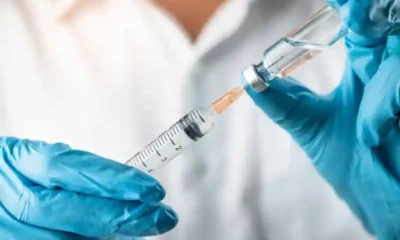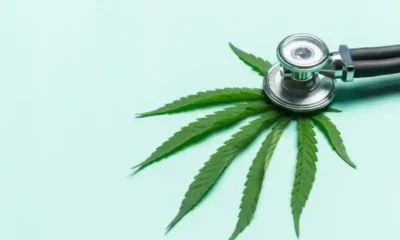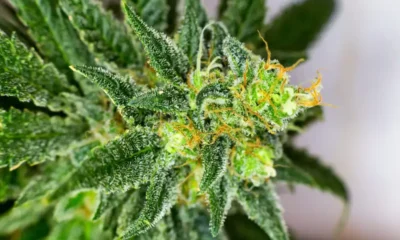Connect with us
Published
2 years agoon

Thailand could potentially set a new precedent for countries in Southeast Asia, as it plans to decriminalize cannabis. The Food and Drug Administration of Thailand is also set to remove cannabis from its controlled substances list and eventually regulate adult-use high-THC cannabis, according to a Bloomberg report. The country already became the first in Southeast Asia to legalize medical cannabis and its use in food and cosmetics.
The country’s FDA is set to propose the removal of cannabis from its list of controlled substances on January 19, and once the decision is cleared, the proposal must be approved by Health Minister Anutin Charnvirakul before it takes effect.
Current Thai law categorizes cannabis as a category-5 narcotic, and possession of the plant can lead to up to 15 years in jail. Thailand FDA’s Deputy Security-General Withid Sariddeechaikool told Bloomberg that, if the nation can pass reforms, Thailand “will be able to benefit from all of the plant and not just parts of it,” adding that “the flower buds and seeds could be used economically and in compliance with the law.”
Chaiwat Sowcharoensuk, an analyst at Krungsri Research, told Bloomberg that the law will open up the cannabis market for sale, though that’s not to say it won’t come with some regulation depending on the product.
“While the law change will allow all parts of cannabis to be bought, sold and used, recreational use will likely remain controlled as marijuana extracts with higher tetrahydrocannabinol levels that get people high will still be regulated,” Sowcharoensuk said.
Sowcharoensuk additionally pointed to the current market in the country surrounding cosmetic products incorporating cannabis, “Producers of soaps, beauty products and cosmetics from marijuana will likely be the ones to benefit the most from the decriminalization.”
The country met that change back in 2020, which allowed cannabis and hemp products in cosmetics and food. The following year, Thailand started to allow hospitals to produce cannabis-based medicines. In 2019, Thailand also invalidated all cannabis patents following an outcry from the public after patent applications for GW Pharmaceuticals and Otsuka Pharmaceutical were not immediately rejected and raised concerns over industry monopolization in the Thailand marketplace.
Thailand has also pursued an approach to cannabis reform which retains many laws that restrict the growing, harvesting and extracting of the crop. With cannabis currently classified as a narcotic, individuals cannot process it, though the country has allowed businesses more access to the plant.
The country also decriminalized kratom last year, a psychoactive plant that is native to tropical Southeast Asian countries.
The country also made headlines late last year with the Thailan Public Health Ministry’s move to establish the International Medical Cannabis Research Center. The aim of the new research center is to create a knowledge hub for genetic research on medical cannabis and bring together doctors, researchers and experts from Canada, the Netherlands and other countries to conduct research on cannabis products. The center will also develop and exchange knowledge on medical cannabis.
Charnvirakul said that the ministry has historically promoted medical cannabis and its safe use for medical treatment, recognizing that cannabis can be used to treat various diseases like cancer, epilepsy, multiple sclerosis with muscle pain and neuralgia.
Additionally, the country was also in world news last year, as one of Thailand’s major fast food chains promoted its “Crazy Happy Pizza,” which is topped with a cannabis leaf, has cannabis infused into the cheese crust and chopped cannabis in the dipping sauce. Though, the general manager of the restaurant Panusak Suensatboon said the pizza will not actually get consumers high.
“It’s just a marketing campaign. and you can taste the cannabis and then if you have enough, you maybe get a bit sleepy,” Suensatboon said.


New York Cannabis Control Board Approves 101 New Adult-Use Licenses


Killer Pharmacist Who Diluted Life-Saving Drugs To Be Freed From Prison


Doctors Join Call To Regulate Intoxicating Hemp Cannabinoids


Is Your Tesla Self-Driving Car Narcing You Out?


Psychedelics Offer Long-Term Improvement in Sexual Functioning, Enjoyment


March Marks New High for Cannabis Sales in Michigan
